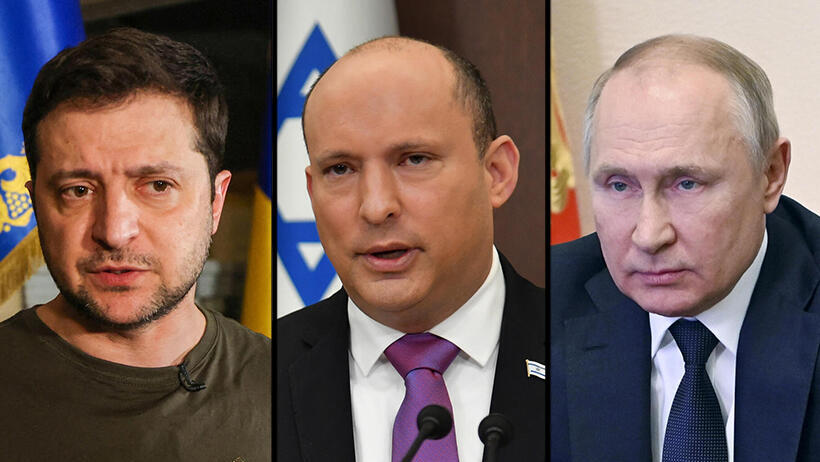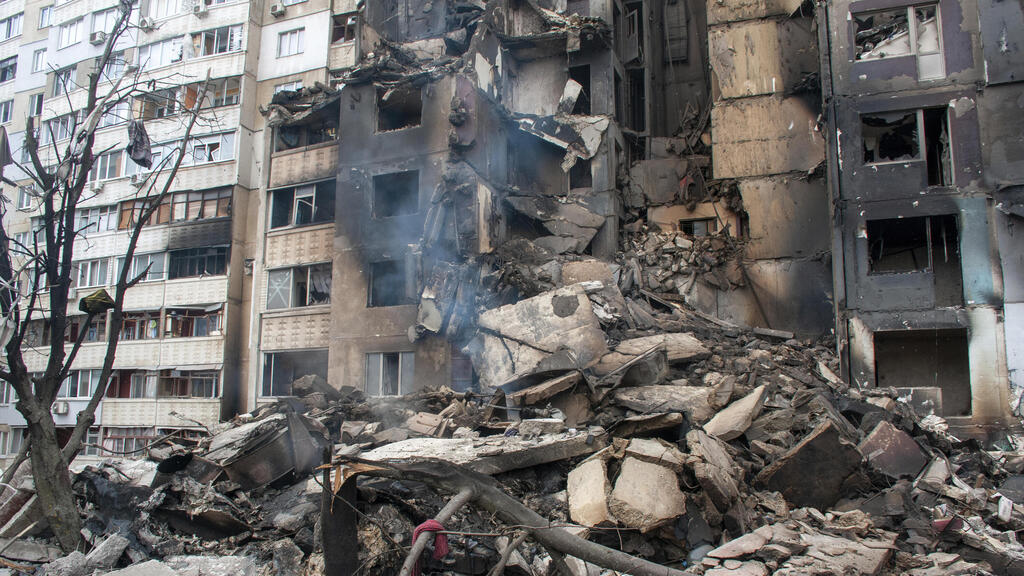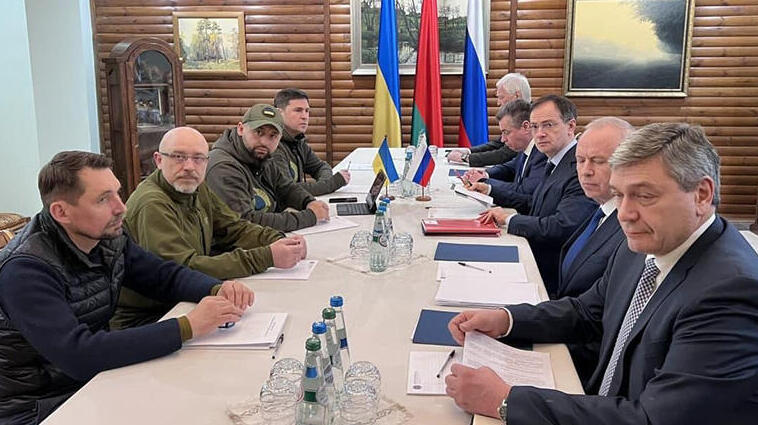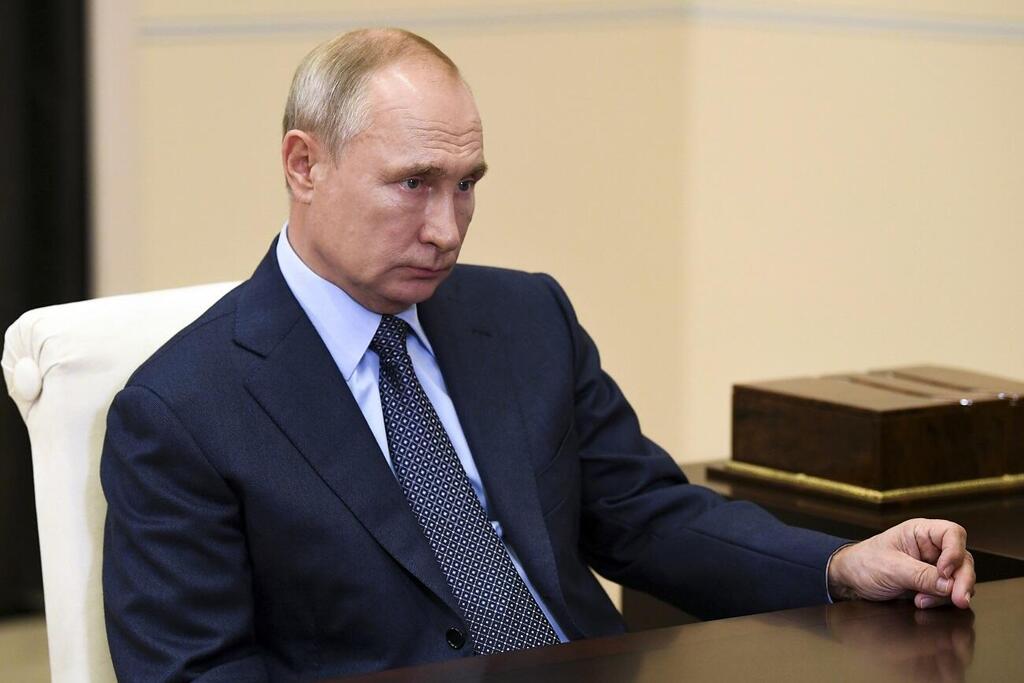While mediation efforts to end the war in Ukraine continue, Ukraine President Volodymyr Zelensky held his fourth telephone call with Prime Minister Naftali Bennett on Tuesday, thanking him for Israel's efforts in mediating between the two sides.
"We spoke about the ways to end the war and the violence," Zelensky wrote. The Kremlin later said Bennett spoke with Russian President Vladimir Putin once again right after.
4 View gallery


Volodymyr Zelensky, Naftali Bennett, Vladimir Putin
(Photo: Reuters, Yoav Davidovitch, AP )
According to sources in Jerusalem, everyone involved in the negotiations understands that the ball in ending the fighting now in Zelensky's court and he will have to decide if he wants to accept Putin's terms, which would preserve Ukraine's sovereignty and keep him in office.
Direct talks between Russia and Ukraine in the Belarussian city of Gomel near the border with Ukraine, are focused on what the Russian demands. So, Israel's role as a mediator was to present Putin with ideas proposed by the West and hear his views.
In fact, some leaders asked Bennett to relay back to them how Putin sees the situation and what he will do if the agreement is not reached quickly. Or, in other words, to understand how far apart the sides are in their talks.
Israel, for its part, did not offer a proposal of its own and does not intend to pressure Zelensky to accept the Russian terms, the officials in Jerusalem said.
"We will not be Neville Chamberlain, Israel's mediation only compliment the talks in Belarus," one Israeli official said, referring to the former UK prime minister best known for his signing of the Munich Agreement on 30 September 1938, ceding the German-speaking Sudetenland region of Czechoslovakia to Nazi Germany led by Adolf Hitler.
According to sources, the warring sides are not too far apart but Zelensky has a difficult decision ahead - agree to the Russian proposal by losing the Donbas region, committing to remain out of NATO, and saving his people from further war and destruction - or keep fighting and remain the beloved leader and international star he has become in the past two weeks.
Thus far, the chances for an agreement remain slim and officials believe the Ukrainian president may have already fallen in love with his position as the darling of the international community. He must show some flexibility, sources say, because Putin will not back down.
The Russian terms do not translate to a Ukrainian surrender, but they are hard to accept. Any agreement that may be reached would not enjoy popularity among the Ukrainian public.
Either way, the negotiations are nearing the point of no return after which a ceasefire agreement will not be possible. The sources add that Putin may harden his demands if no progress is reached in Belarus.
As of now, Bennett appears to be the only Western leader who has received an in-depth view into Putin's desires and details about discussions in Belarus, on which the West had remained in the dark.
Bennett also requested assistance in extracting Israelis and Ukrainian Jews from the areas of fighting and received Putin's assurance that if needed, his forces will provide help.
The participation of Kharkiv-born Housing Minister Ze'ev Elkin during Bennett's visit the Moscow was also very helpful, the officials said, allowing the conversation to flow interrupted.
The Israeli officials say Putin would like the war to end, but on his terms and that message was relayed to the leaders in the West.
They say the Russian president is well aware of his options in numerous scenarios. He does not seem confused, surprised or panicked, they add. He is rather very confident and clear-minded about his ambitions.
Putin, they say, is sticking to the basic premise that Russia's military machine will ultimately break Ukraine's resistance, and from his perspective, some of the delay of Russia's military progress has been due to the president's desire to see what negotiations would yield.




